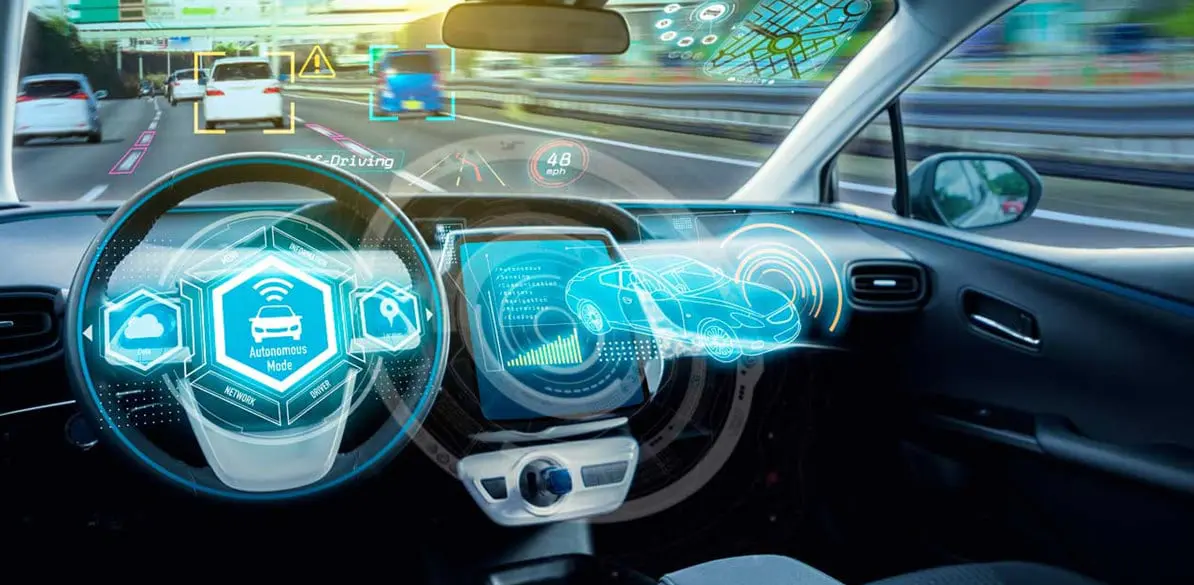Opportunities and challenges for the safety of autonomous cars
The challenges of artificial intelligence applied to the new automotive industry

Over 1.2 million people die in traffic accidents every year, according to the World Health Organization. Additionally, tens of millions sustain injuries or are left with permanent disabilities. Most of the accidents that cause these dramas are due to human error. Alcohol, drugs, tiredness at the wheel or simple distractions end up as terrible tragedies for those affected and their families. The artificial intelligence incorporated into autonomous cars could prevent 90% of these accidents, according to Professor Iyad Rahwan of the MIT Lab.
The autonomous car, which has always been an object of desire for science fiction fans has now become a reality. Thanks to advances made in artificial intelligence, computing capacity and connectivity infrastructure, sure and steady steps are being made towards a near future of cars that are proactively able to protect their occupants and the people around it. PWC, in its 2016 report, estimated that a fully autonomous car will be available in 10 years time. Even so, judging by the exponential speed at which the associated technologies are advancing, it would be no surprise if it were to arrive ahead of that date. According to a report by consultants BCG, in 2035 more than 12 million fully autonomous cars will be sold.
Therefore, over the coming years, we are going to see the proliferation on our streets of a technology capable of saving more than a million lives and preventing many millions more injuries, along with all that implies in terms of human resources and healthcare costs which could be dedicated to other diseases. Another positive factor to emerge from the proliferation of autonomous cars is the environmental impact. We are heading towards a future of shared autonomous vehicles that come and collect you, take you to where you need to go and then head off to take somebody else or return to their garage. In fact, to a large extent, this reality is already here thanks to connected car sharing which, while not being autonomous, can now offer many of these advantages.
Nevertheless, as with all advances, the road towards this future is not without its challenges. One of the first of them already being faced by the automobile industry in respect of connected cars, and which will be exacerbated in the case of autonomous cars, is the issue of cyber security. But another challenge is to do with ethical decision-making. In a famous experiment,professors Bonnefon, Shariff and Rahwan ran a survey to ask how an autonomous car should act when faced with the option of saving the driver in a situation that involved running over a group of people to achieve this, probably killing them, or to avoid the group of people, thereby allowing an accident to happen in which the driver would probably die. While it is unlikely that an autonomous car would find itself in exactly this situation, it would still have programs that take decisions about risky maneuvers which imply making value judgments about people’s lives. The conclusion of the study was that those surveyed felt that the car should protect the group of people. Several lives matter more than one. But then, when asked if they would buy such a car, the majority answered of course not! Basically, we would like our car to protect only us, but for everybody else to buy cars that protect others. Manufacturers are experiencing real problems when it comes to handling this subject and some have let slip that, in the improbable case of such a situation happening, their cars would protect the driver.
In any case, while we debate the potential decisions made by autonomous cars in improbable situations, the reality is that, every year, millions of people continue to become car accident victims. Even a still imperfect autonomous car would improve road safety so significantly that it seems unreasonable not to use every effort possible to push forward with this technology. Maybe a future in which road accident deaths and injuries don’t feature in the headlines is just around the corner.
About the author:
Concepción Galdón is Director and Academic Lead of Social Innovation at IE, Concepción focuses on the use of technology in social entrepreneurship, as well as promoting the creation of academic content in the field of Social Innovation for both schools and a number of programs.
